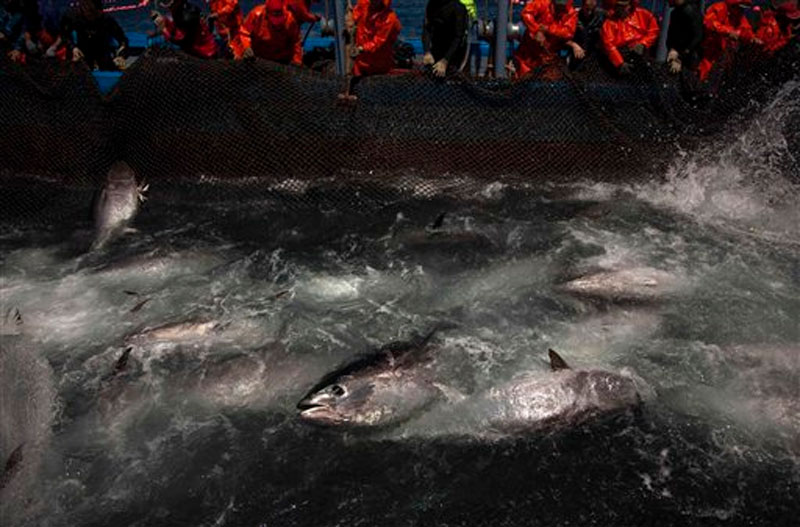EU looks into reports of fake fish labeling in Brussels
BRUSSELS: The European Union is looking into reports that cheap seafood is often mislabeled as choice fish in some of the Belgian capital's fine restaurants and even in EU cafeterias.
The Oceana environmental group said Tuesday it found that 31.8 percent of seafood it tested in and around EU institutions in Brussels was a different fish than what was labeled on the menu. In the cafeterias of the EU, which sets fishery policies for the 28-nation bloc, the total amount of falsely labeled fish stood at 38 percent.
"We take this very seriously," EU spokesman Alexander Winterstein said of the report.
Oceana said 95 percent of what was labeled Bluefin tuna — a fatty, sublime sushi favorite — was actually a less expensive species, served to make a hefty profit. In 13 percent of the cases, cod was also mislabeled and people sometimes were fed pangasius instead, a freshwater fish farmed in southeast Asia.
"Some restaurants with a good reputation are not better than others," said Oceana executive director Europe Lasse Gustavsson. "Obviously, it is a way to make more money."
The study did not assign blame or say whether the restaurants themselves were being unscrupulous or if they were being duped by some fish wholesalers.
A 2014 Oceana study of Danish fishmongers found that 18 percent of the cod sold there was not cod, but haddock or saithe. France stood out, however. When Oceana had a study there, only 4 percent of targeted species were mislabeled.
At EU headquarters, Gustavsson found some of the strangest mislabeling cases.
"This is almost hilarious," he said, "because this is not even for profit ... you are replacing cheap fish with an expensive one."
Winterstein said EU institutions are dependent on the labeling controls of Belgium, where EU headquarters is based.






